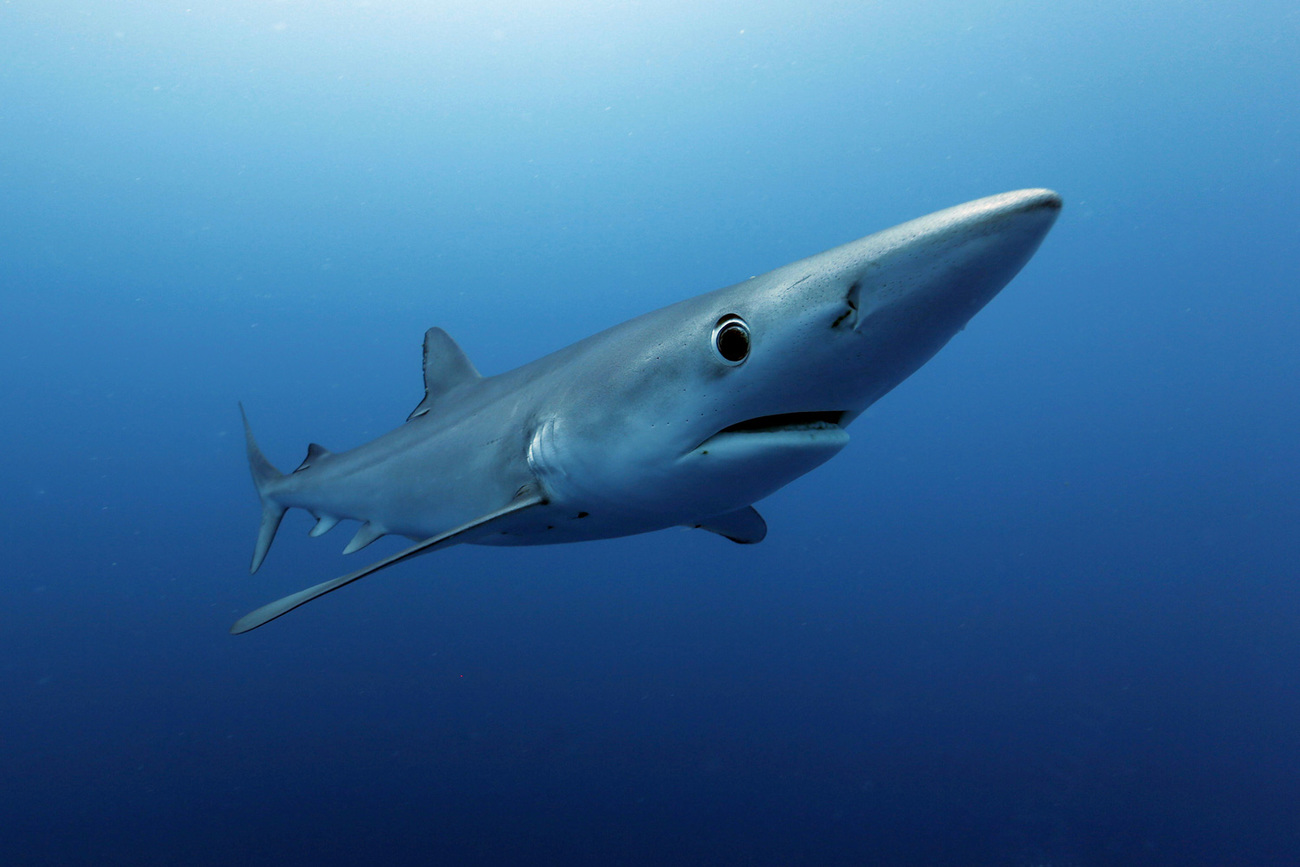Policy Conventions & Agreements - Global
Protection for wildlife & habitats is preserved in global agreementsgroundbreaking vote to control the unsustainable global trade in shark fins
groundbreaking vote to control the unsustainable global trade in shark fins

NOTE: Update on guitarfish as of 18 November.
(Panama City, Panama – 18 November 2022) — A groundbreaking decision has been taken by world governments that promises to turn the tide for shark conservation, with nearly 100 species of shark and ray awarded increased protections by the 19th Conference of the Parties (CoP19) of the Convention on International Trade in Endangered Species of Wild Fauna and Flora (CITES).
IFAW welcomed the decision by governments taking part in CoP19 in Panama City, Panama, who voted overwhelmingly in favor of listing all 54 species of the requiem shark family, six additional hammerhead shark species, and 37 guitarfish (shark-like species of rays) on CITES Appendix II, introducing new sustainability requirements for international trade to be permitted.
“IFAW applauds governments for this groundbreaking decision to control the unsustainable global trade in shark fins and meat, a trade which has pushed some of these ecologically important predators to the brink of extinction,” said Barbara Slee, IFAW’s Senior Program Manager of International Policy.
“This vote can transform shark conservation, giving much needed protection for species that have long been overlooked,” added Slee. “Panama and its partner governments have offered a clear pathway for the survival of these species. IFAW has long advocated for such action and looks forward to working with governments to improve the management of shark fisheries that will result from this change.”
Combined with further shark and ray listing proposals, the three proposals place nearly all shark species traded internationally for their fins under CITES oversight and controls, up from only 25% prior to CoP19. The inclusion of nearly all species currently in the global shark fin trade means it will be far easier for customs and enforcement officials to ensure only legal and sustainable trade is taking place, as virtually any shipment of shark products will require a permit demonstrating that trade meets legal and sustainability requirements for international trade in CITES Appendix II listed species. At present, there are few restrictions in place and most shark fisheries around the world have little to no management.
The Government of Panama led the initiative for requiem sharks, in partnership with 40 nations around the world, including EU Member States. Sharks and rays are the second most threatened vertebrate group on the planet, most often fished to excess for their fins and meat. A third of all sharks and rays are threatened with extinction. This rises to two-thirds for species that feature in the international fin trade. Pelagic sharks (species of sharks found on the high seas) have declined more than 70% in only a 50-year period. For coastal species, a recent study found that shark populations were functionally extinct on 20% of coral reefs surveyed globally, further jeopardizing the health of these ecosystems that are already being devastated by climate change and are fundamental for the survival of dive and tourism industries and coastal fisheries upon which millions depend worldwide.
The proposals required a two-thirds majority of governments present to pass. The requiem shark listing included 19 Critically Endangered or Endangered species and a further 35 species for lookalike reasons and was passed in secret ballot with 88 votes in support, 29 against and 17 abstentions. The small hammerhead listing included the Endangered bonnethead shark as well as five other members of the hammerhead family. It was passed by consensus. 37 species of guitarfish were proposed for listing. The guitarfish listing was passed by 101 votes in support, with 14 against and 13 abstentions.
CoP19 is scheduled to run until Friday, 25 November. All listing proposals must be endorsed by the plenary session of the CoP on the final two days.
ENDS
IFAW experts on site and available upon request—in person or via phone/Zoom—including in English, Spanish, French, Arabic, Chinese, Dutch and Italian languages.
IFAW is tweeting updates live from the proceedings at http://twitter.com/ifawglobal.
Visual editors: High resolution photo and video in support of Panama’s shark proposal can be downloaded HERE.
Additional images available on request.
Note to editors
The requiem shark listing was proposed (proposal 37) by Panama, Bangladesh, Colombia, Dominican Republic, Ecuador, El Salvador, European Union and its Member States, Gabon, Israel, Maldives, Senegal, Seychelles, Sri Lanka, Syrian Arab Republic, United Kingdom of Great Britain and Northern Ireland.
The small hammerhead shark listing was proposed (proposal 38) by European Union, Brazil, Colombia, Ecuador and Panama.
The guitarfish listing is proposed (proposal 40) by Israel, Kenya, Panama and Senegal.
Both the requiem and small hammerhead sharks listings were awarded CITES Appendix II protections on 17 November, and guitarfish were awarded it on the 18 November.
Press Contacts:
Dominca Mack, Communications Manager, Australia
WhatsApp: +61 460 432 901, e: dmack@ifaw.org
Stacey Hedman, Director of Communications, International Policy
WhatsApp: +1 508 737 2558, e: shedman@ifaw.org
Related content
Every problem has a solution, every solution needs support.
The problems we face are urgent, complicated, and resistant to change. Real solutions demand creativity, hard work and involvement from people like you.